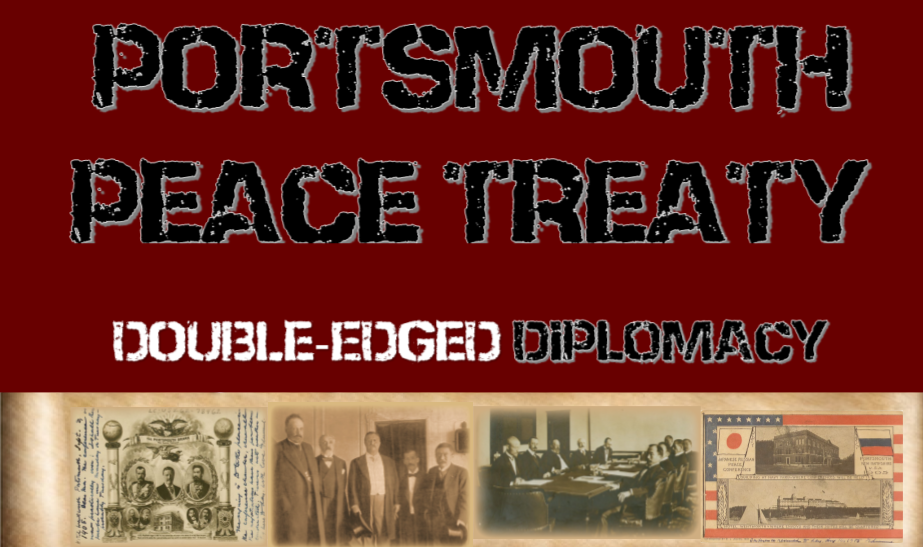
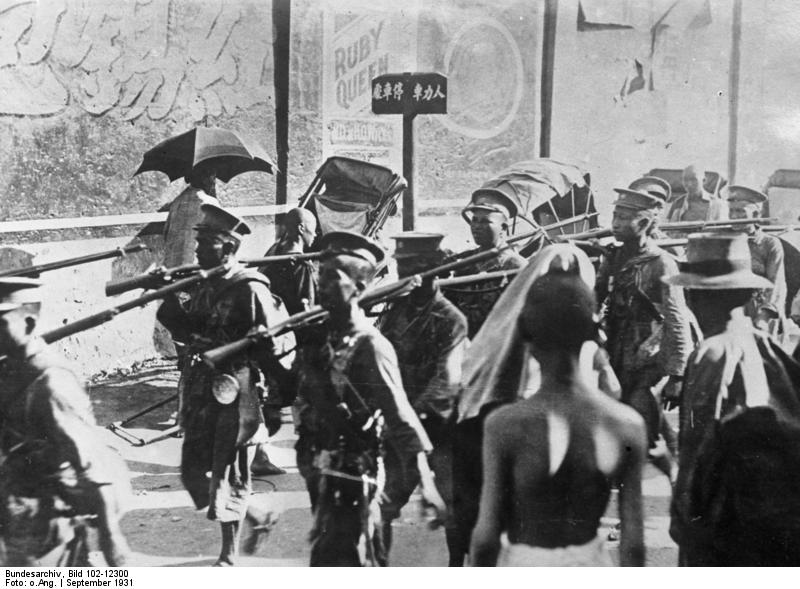
Japanese troops invading Manchuria, driven by Expansionism and the prospect of war gains.
Source: Asia-Pacific Journal

The Portsmouth Peace Treaty arguably kickstarted the golden age of Japanese Imperialism. Numerous concessions gave Japan a foundation on which to build a great empire. Japan would have received more Russian concessions if not for President Roosevelt's opposition. This, combined with numerous economic, political, and social reasons made it practical for Japan to adopt an imperialist approach to foreign affairs.
President Roosevelt was the first American to be awarded the Nobel Peace Prize for negotiating the treaty. He advocated for an international league to maintain world peace.
In post-treaty times, the Japanese political system was in turmoil, with the Military overpowering the Civilian branches of government. Historically, Japan was a nationalist-military state. Its full control in Korea as a result of the Portsmouth Peace Treaty emboldened its expansionist ideology.
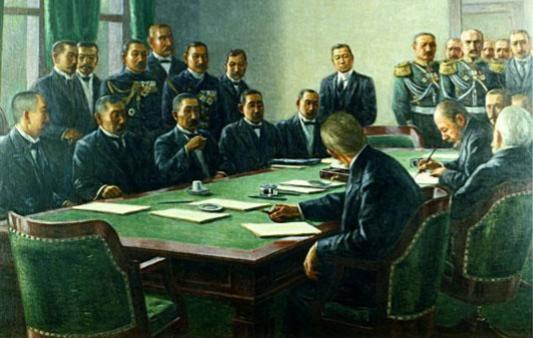
The signing of the Portsmouth Peace Treaty
Source: PortsmouthPeaceTreaty.org
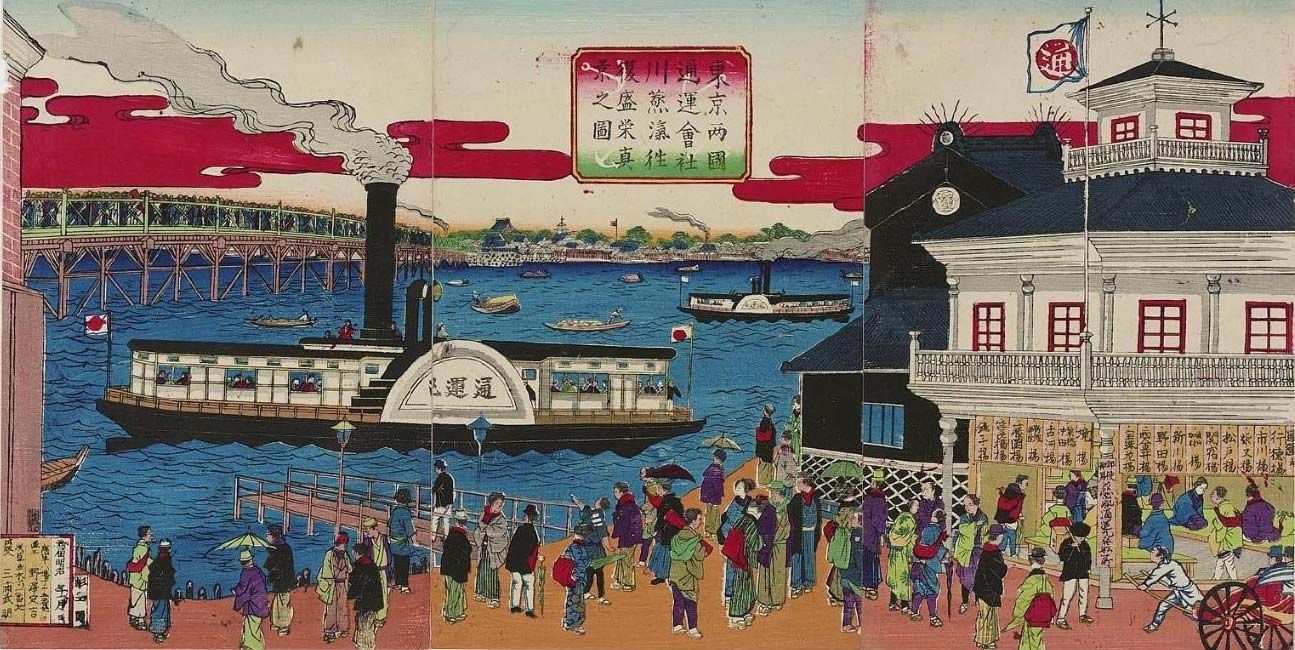
New steamboats were commonplace in Meiji-Era Tokyo, due to numerous technological and economic advances.
Source: Edo Tokyo Museum
In the 1900s, Japan's economic prosperity from the Meiji Restoration led to the decision to invade nearby regions. After the rapid modernization, Japan’s population boomed, and it increasingly depended on imports to survive. Expansionism and economic pressures rendered military invasion beneficial and necessary.
Japan was previously forced by the Western Powers to open for trade and commerce. The Japanese leaders feared that Japan would be divided and conquered like China, and decided to annex other “inferior” lands and become a World Power.
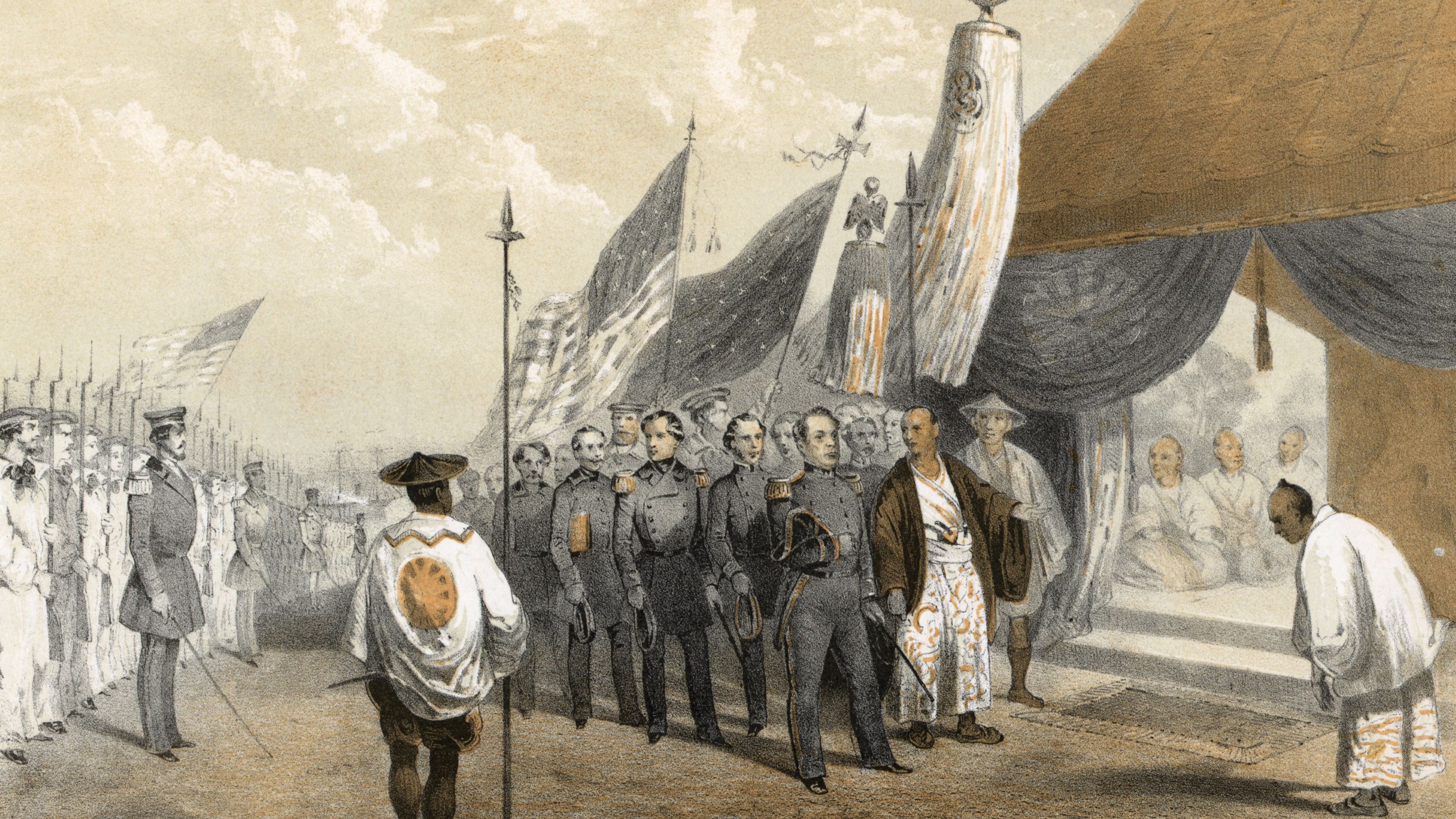
"Commodore Perry meeting Japanese officials."
Source: Bettmann/Getty Images